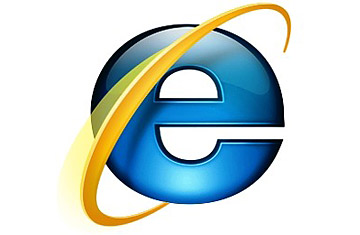
On March 14, six months after Microsoft released the first full-blown beta version of Internet Explorer 9, it made the final version of its new Web browser available for download. The company celebrated the launch with a press event and party at the South by Southwest Interactive conference in Austin — a move that had a whiff of cognitive dissonance considering that elite techies of the sort who attend SXSW long ago abandoned IE. (Along with Microsoft products in general: I must have spotted a couple dozen MacBooks in use at the conference for every Windows laptop.)
In this case, though, unveiling a new version of Internet Explorer at a geekfest had a certain logic. Much of what's new about IE9 is meant to excite developers, content creators and others who shape the Web. For instance, the browser is designed to correctly support current and upcoming Internet standards and technologies, something earlier versions of IE were famous for not doing. And it can leverage all of the awesome power of the high-powered graphics chips inside new PCs, so sites can feature animation and other fancy effects without bogging down the browser.
IE9 has a streamlined, clutter-free interface that is strongly reminiscent of the one pioneered by browser-aficionado favorite Google Chrome. It also sports some slick tie-ins with Windows 7, like the ability to "pin" any site to the Windows Taskbar for one-click access. All in all, it's easily the best new Microsoft browser since the 1990s. Which is good news for the 57% of Web users who run Internet Explorer — even though a sizable chunk of them won't be able to try it until they upgrade, at long last, from Windows XP. (IE9 supports only Windows 7 and Windows Vista.)
Microsoft's rollout comes during an uncommonly busy month for the browser business. Last week, Google introduced Chrome 10, which it bills as "speedier, simpler and safer." (It's a sign of the torrid pace at which Google improves Chrome that it hit version 10 just 2½ years after its debut; Internet Explorer took 16 years to get to version 9.) Mozilla, the nonprofit responsible for Firefox, will release the final version of Firefox 4 on March 22, delayed from the original target date of November 2010.
Firefox 4, in beta form, is already the browser I use most often. It's terrific. Chrome is also extremely pleasing. So is Apple's Safari, which is available for Windows as well as serving as the default browser on Macs. And so is a perennial underdog, Norway's Opera.
With IE9's arrival, in fact, you have to go out of your way to be stuck with a bad browser. (That's a feat some folks manage to accomplish: 12% of Internet users are still running the decade-old anachronism known as Internet Explorer 6.) But as good as all the current browsers are, they're all good in many of the same ways.
It's not that they have no distinguishing characteristics. Chrome, for instance, is the only browser with its own app store, and Safari has a mode that strips content down to its bare essentials for easy reading. The new Firefox has some of the fanciest features for managing tabs, including the ability to organize related ones into groups.
Overall, though, the browsers reflect a remarkable consensus about what's important. Everybody is working hard to make their browsers as zippy as possible, so Web services such as Facebook and Gmail feel as fast as conventional software. Everybody agrees that browser users should be in control of their own privacy, as shown by new features in IE9 and Firefox 4 that are designed to help consumers stop advertisers and others from snooping on their online activity.
With the arguable exception of Apple, everybody thinks that menus, toolbars, fields and other frippery should be kept to a minimum so people can concentrate on the site they're using rather than the browser. And everybody except Microsoft lets users install third-party add-ons that can tweak the browser in a multitude of ways. (Microsoft permits limited customization of IE but says ceding too much control to add-ons can leave browsers sluggish and crash-prone.)
With so much that's so similar across the major browsers, they're starting to look like fraternal twins — I like to dabble with all of 'em and sometimes forget which one I'm using. That would never happen back when the only major browser options were a rapidly calcifying IE and the earliest, scrappiest versions of Firefox.
I don't mean to come off as an ungrateful wretch. Anyone who lived through the period when Internet Explorer was both mediocre and monopolistic, with more than 90% market share, knows that today's vibrant competition is a beautiful thing. But I can't help but think that the category could use a little discord. Harmony is all very well, but if there are great leaps forward still to come, they'll spring from a radical rethinking of what a browser should be — not from all the big players' continuing to march in the same direction.
McCracken blogs about personal technology at Technologizer, which he founded in 2008 after nearly two decades as a tech journalist; on Twitter, he's @harrymccracken. His column, also called Technologizer, appears every Thursday on TIME.com.
